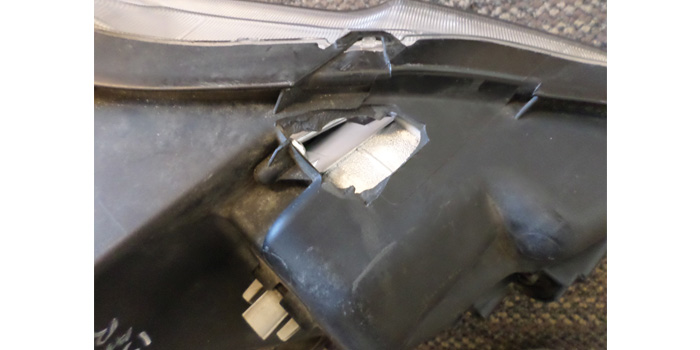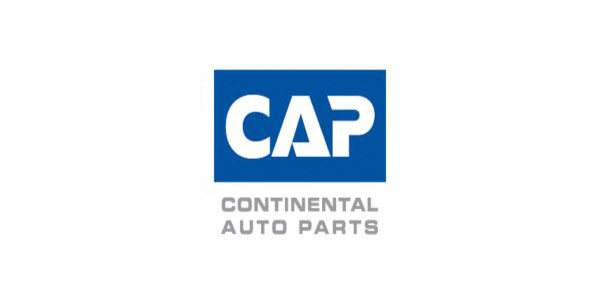“Why do insurance companies require repair centers to put substandard parts on customers’ vehicles and not get in trouble with the law? Headlights are, in my opinion, not able to be reconditioned. They’re typically sealed between the lens and housing from the OEMs. When we receive a reconditioned light, it has screws and glue visible and usually fails within months of installation due to the capsule not being sealed, allowing moisture to enter it. Bumper covers are deemed non-repairable by professionals in the collision center and are then reconditioned by an employee paid minimum wage at an outside company, then returned to collision centers to be re-installed back on their customers’ vehicles, and as you can imagine are nowhere close to being quality parts. This is a day-to-day challenge for anyone involved in the collision repair industry. What the public doesn’t know is what their insurance companies are putting on their vehicles. Most customers have no idea the bad quality parts insurers require collision repairers to use.” – Kenneth Berend, estimator, Dave Sinclair Buick GMC, St. Louis, Mo.
First, let’s be perfectly clear that insurers cannot force a collision repairer to do any of the following:
- Install faulty, salvage, imitation, unsafe, substandard, reconditioned, new OEM and/or otherwise incorrect parts or any parts on a consumer’s vehicle
- Perform faulty, unsafe or non-recommended repair procedures In fact, insurers cannot force collision repairers to do anything! They have zero legal authority to do so unless they’ve elected a specific policy provision, which is only applicable in a first-party claim and a representative from the insurer signs your repair contract. Ever seen that happen? Me neither! Doing the things mentioned above or any other improper procedure to a vehicle is a willful act of one’s self and, in my opinion, if done without the express written consent of the vehicle owner, a form of fraud.
Control
Insurers should never be brought into the repair process. That is not the legal function of an auto insurer. If you’re referencing a DRP shop when you talk about being “forced” to install improper parts and perform improper repairs, it would be hypocritical for them to complain about the bed they’ve made. You lay with pigs and you get dirty. That’s just the facts. You give up even the slightest control of your business, you get what you get. Furthermore, you’re a conspirator to commit fraud against the consumer. Why, you ask? Legally, only the vehicle owner can authorize repairs.
Seeing the Light
As for light assemblies, it’s difficult to say that reconditioning is improper as a whole because so many manufacturers offer replacement brackets for such repairs. That doesn’t mean it’s OK to do any old repair or plastic welding process and call it properly repaired. We have to use common sense as to whether a light assembly can or, most importantly, should be repaired. That’s true for any part of the vehicle. More often than not, I hear, “I can repair that” rather than “Should I repair that?”
Sounds like you have at least two problems. The first problem is, if you’re so inclined to please insurers by installing this junk, it’s a vendor problem and a business decision issue. Are you simply using the listed vendor on the insurer’s paperwork? If so, maybe you should find another vendor and let them know your expectations and see if they can meet these. If they can’t, let your customer know you don’t have access to a quality rebuilt product. Ethically, you should simply stop using the junk that you know is junk before you ever order it. If it’s going on the car, it’s not the insurer’s fault. The second problem is the lack of knowledge of your legal responsibility to your customer and the insurer’s legal responsibility to them. Been there, done that…changed it! Of course, a shop owner has to be willing to make major changes in his business model to do this. Very few have the courage and willingness to make these changes. The very reason so many ask the same questions about “why” and “force” is point of fact that no one knows what to do.
Bumper Covers
Bumper covers are no different. If they can’t be repaired in the shop environment, they most likely shouldn’t be repaired at all! Frankly, not every cover should be repaired even if it “can” be done in-house. How and where bumpers are reconditioned is irrelevant to the fact that you are responsible for the bumper cover, headlamp and all other aspects of the repair. It all falls back to the shop owner/manager.
We haven’t installed a recon bumper cover in well over a decade and have no problems selling all new OEM parts to our customers. The insurer has no direct say with us. Should a customer decide they want to go with the insurer’s specified part, we’ve developed a hold harmless agreement that puts the monkey on the back of the vehicle owner and the insurer should the part be substandard or otherwise. Sidenote: This only applies to parts that are not safety-related. If it’s a safety part, we will not install it. This again goes back to me being educated in the legalities of running a collision repair business and my obligation to my customer. (Notice I said nothing about an insurer; I have no obligation to any of them.)
No Clue
You bring up a critical point when you say the vast majority of consumers have no clue what they’ve purchased when it comes to auto insurance. Shame on lazy agents and lazy consumers! But I digress. This is why shop owners/managers should educate themselves about such things and the consumer laws in their states.
While there’s far too little time here in my written answer to explain all the particulars, I will note that it takes years to learn and master this process, assuming it can truly be mastered. Simply put, you gain the knowledge of what the vehicle owner is actually owed, and you give them the bits and pieces so they can be a little more empowered to handle their insurer. After all, it’s their claim, not ours, right? I don’t need a supplement, the vehicle owner does, right? The insurer isn’t liable for the repairs, right? You can’t tell the judge, “The Devil made me do it,” right? That doesn’t fly in court. That leaves you and I to make sure we do the legal, moral, ethical and correct thing and make sure the vehicle owner understands what we must do in order for us to take on 100 percent of the repair liability.
Here’s something else to chew on. You can’t tell your own shop liability insurer that the customer’s insurance company “forced” you to install “junk” that you knew was junk before you installed it. You’ll most likely find they’ll enact the “willful acts” clause in your policy. Simply put, your own your own!
No Easy Answer
To be clear, there is an easy answer, but it’s lengthy and the implementation is a process. There’s not even a short-term answer other than developing a hold harmless for your customers. It’s a problem you’ve brought upon yourself for various reasons. But don’t feel bad, you’re in good company as this industry has brought every problem we’ve ever or will ever face on itself, me included. The key is to learn from those mistakes and make the necessary changes to yourself and the business. This will separate you from the competition. Insurers won’t like it because you’re simply dealing in the truth, the whole truth and nothing but the truth. Far too many insurers deal in much less than the whole truth. More unfortunate is the large number of collision repairers who do the same. I’m not anti-insurer or anti-collision repair industry, I’m just anti-fraud and anti-crook. I have a great auto and home insurer myself and couldn’t love them more.
Make no mistake, these changes require at least two years of implementation. And they won’t work for everyone because not everyone will be willing to do it to the letter. One can’t pick and choose what to implement. As I stated earlier, it’s a process. However, there’s no other fix for our industry’s woes. That’s not my opinion, either. I believe it to be fact based on my own experience. Visit http://www.safecollisionrepairs.com/artman2/publish/steering/keep_this_job.shtml and read the article “Keep This Job” by attorney Patrick McGuire. This is the article that lit the fire under me 10 or so years ago and started my education process. I believe it speaks to the very issue you describe and answers it perfectly. This article is a great read for shop owners, managers and consumers. It’s lays out pretty plainly what insurance is supposed to be, not what many companies have bastardized it into. Don’t read it once, read it about 10 times, then at least two or three times a year.
Major Overhaul Needed
The two problems you mention are symptoms of a horribly sick industry that needs a major mindset change, insurer deprogramming and education. We need to overhaul our individual brains and our hearts and know that we willingly carry 100 percent of the liability on our shoulders. We educate ourselves on new vehicle technology, but so many neglect their actual business education. That should come first! We must remember that insurers do not owe us for repairs – they owe the vehicle owner. The vehicle owner and only the vehicle owner can authorize and legally be charged for anything done to their vehicle. The insurer owes the vehicle owner either contractually or because of a tort.
Shops need to have clear-cut repair contracts laying out the terms of the repair process, which includes completion and payment expectations. It doesn’t have to be very long, but it needs to include your terms that cover you and your business. The changes involve some legal forms, which most shop owners would be scared to use, and the insurers would hate knowing you have them. Take control of your business and decide, with your customer, the right parts and procedures for the job. There is no other way to protect yourself, your customers and your business.
I’ll end with this. Read any insurer’s paperwork and you’ll typically find words such as, “This is not an authorization for repairs. Only the vehicle owner can authorize repairs.” Now ask yourself this question: If insurers can’t authorize any repair, how can they specify any part to be used in a repair? The answer is very simple: They can’t. You decide what’s necessary with your well-educated customer so they can handle it with the insurer. You’ll find that after awhile, many insurers will weigh the risks vs. rewards and let it be. They tend to play off people’s ignorance of their policy language and meaning, or in 3rd party that they’re simply owed to be put back in the same position as before. Overcome the ignorance with knowledge and there’s far less success in pulling the wool over a consumer’s eyes – or a shop owner’s eyes, for that matter.














